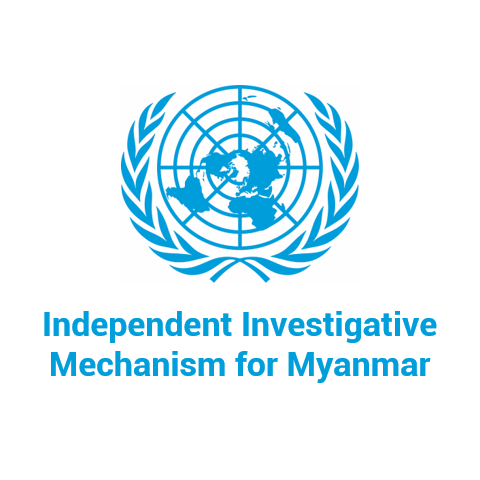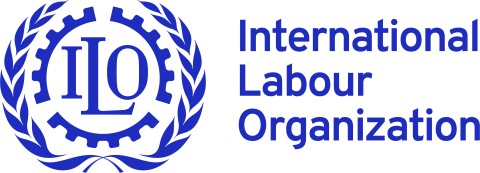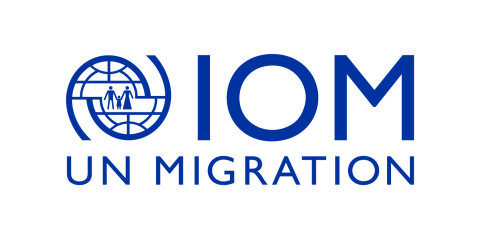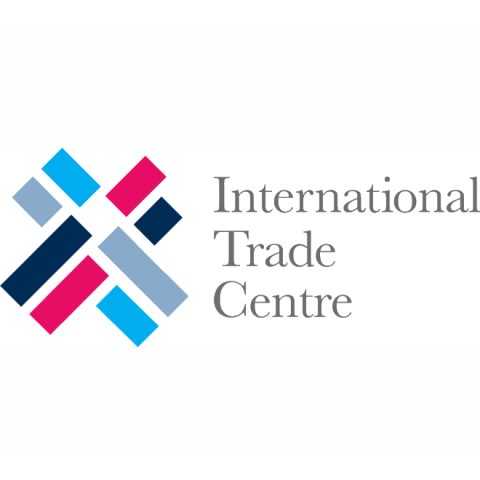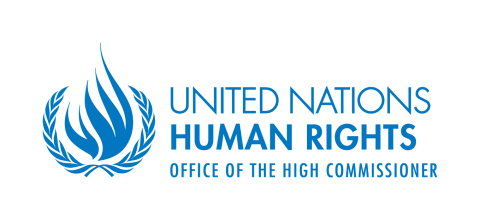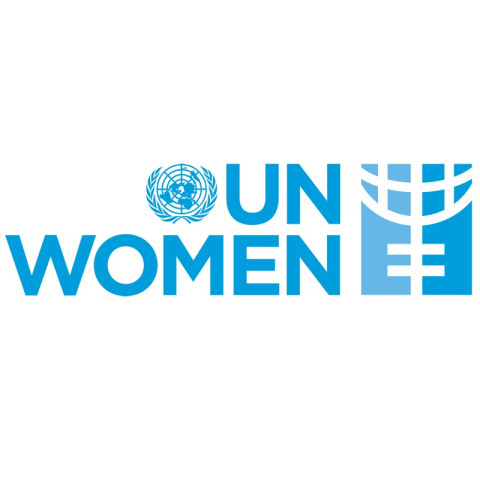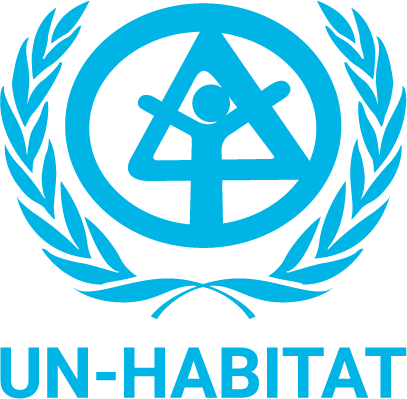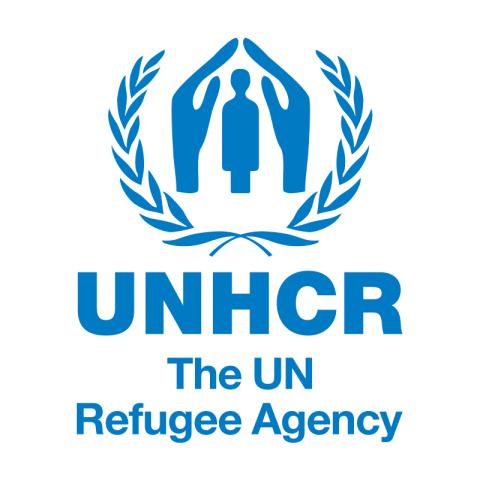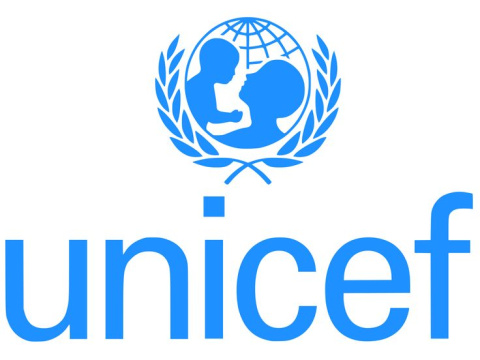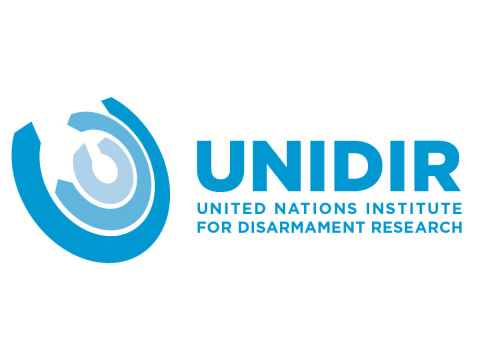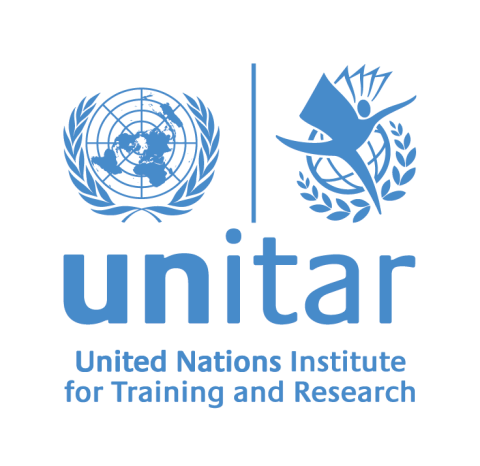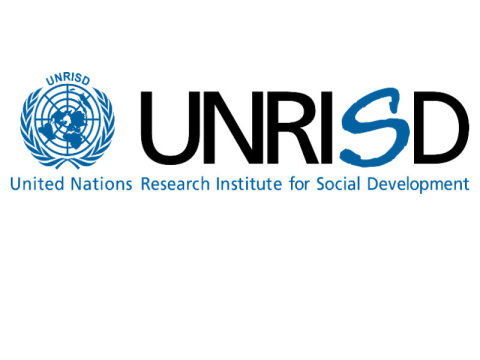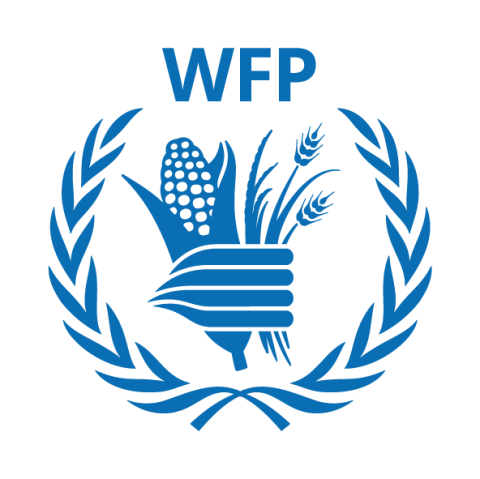
Fil d'Ariane
Defining human rights
Universal Declaration of Human Rights (1948)
The 30 articles written down in the Universal Declaration of Human Rights mark the first international agreement ever on people's rights and liberties. They span from the most basic, the right to life, to the right to non-discrimination and equal treatment and much more specific situations, such as the right to equal protection before the law, the right to leasure, or the right to move freely within and outside of one's country.
The Declaration itself is not a legally binding document but a joint commitment of States. It has, on the contrary, inspired more than 80 international human rights treaties.
The International Covenants (1966)
The International Covenant on Economic Social and Cultural Rights and the International Covenant on Civil and Political Rights further elaborate on many of the concepts already touched by the Universal Declaration of Human Rights. They are binding for States who ratified the Covenants, and these States commit to translating them into national laws. They include, e.g., the right to privacy, freedom of religion and belief, or freedom of expression (civil and political rights), the right to social security, education or freedom from hunger (economic, social and cultural rights).
Human rights treaties (since 1965)
The International Covenants form part of the nine core human rights treaties, the other seven being:
- International Convention on the Elimination of All Forms of Racial Discrimination (1965)
- Convention on the Elimination of All Forms of Discrimination against Women (1979)
- Convention against Torture and Other Cruel, Inhuman or Degrading Treatment or Punishment (1984)
- Convention on the Rights of the Child (1989)
- International Convention on the Protection of the Rights of All Migrant Workers and Members of Their Families (1990)
- International Convention for the Protection of All Persons from Enforced Disappearance (2006)
- Convention on the Rights of Persons with Disabilities (2006)
The implementation of these treaties is being monitored by treaty bodies – independent experts under the umbrella of the UN who analyze State party reports and conduct country visits, follow up on individuals’ complaints, and organize discussions with Member States or human rights experts to ensure the correct implementation of the respective treaty by all its signatories.
Working hand in hand with governments
The Human Rights Council, comprising of 47 Member States, is the UN's main decision-making body on human rights matters. The Council passes resolutions which serve as guiding principles for all States (and individuals).
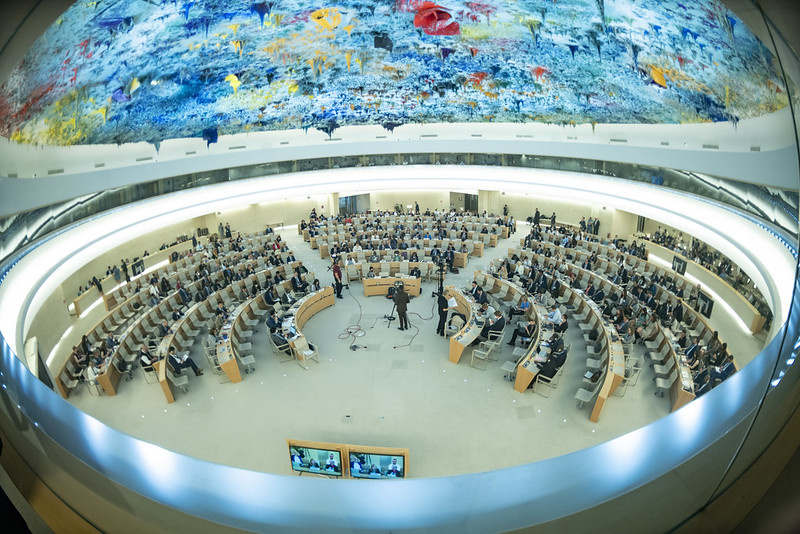
Example: On 8 October 2021, the UN Human Rights Council adopted resolution 48/13, a landmark agreement recognizing that a clean, healthy and sustainable environment is a human right. It prompts governments to develop or improve their national legislation and supports the work of all human rights defenders and environmental activists.
In its resolutions, the Council can request OHCHR to provide insights, reports and studies about a specific situation. It can also request the office to provide technical assistance to a country.
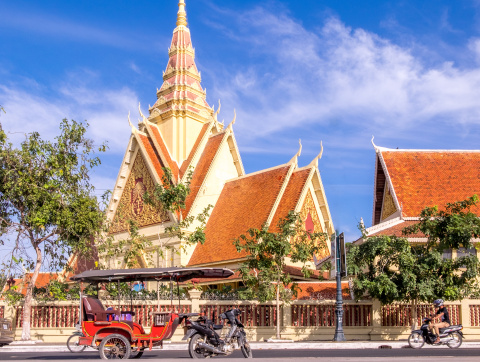
Example: In a resolution passed at its 54th Session in 2023, and in agreement with the government of Cambodia, the Council tasked the United Nations to assist Cambodia in the establishment of a national human rights mechanism to improve the countries’ legal institutions by training judges, lawyers and court staff, as well as its law enforcement entities, and to assist Cambodia to better measure its progresses in human rights issues.
Monitoring the human rights situation across the globe
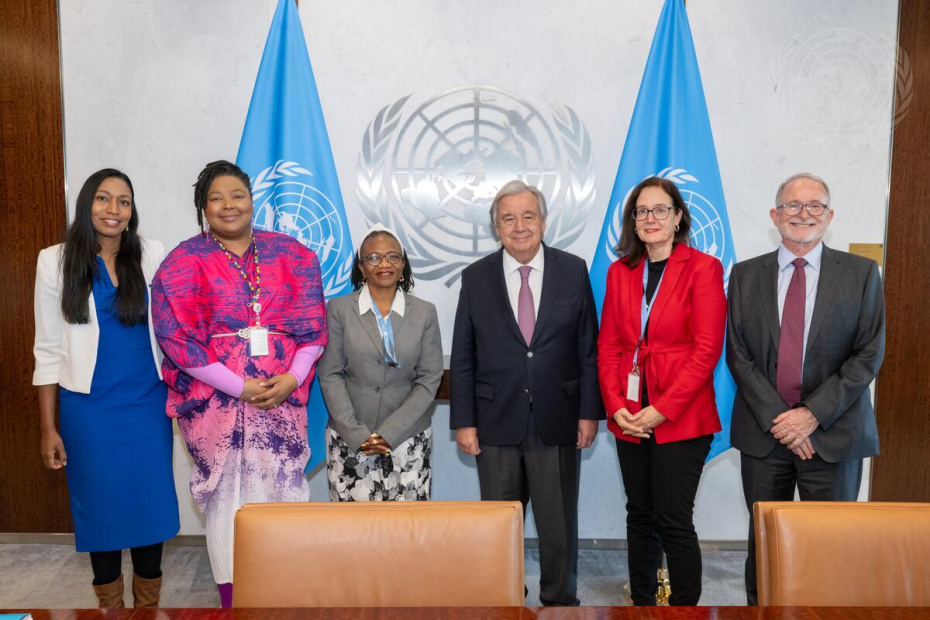
Special Procedures
The Human Rights Council appoints so-called Special Procedure mandate holders – these are human rights experts who work on a specific thematic or regional area, topics ranging from albinism to climate change to mercenaries or involuntary disappearances. The individuals or groups are usually very outspoken about human rights abuses falling under the purview of their mandate. They make public statements, visit countries to observe the human rights situation, and follow up on individual cases. Once a year, the mandate holders report their findings to the Human Rights Council, and, on demand, to the General Assembly.
These mandates receive support from the UN, in terms of staffing or coverage of travel costs. However, the positions are not paid, mandate holders are independent and not staff of the United Nations. This emphasizes their neutrality towards any actors.
Example: Armenia changes policy on creating segregated communities for poor and children with disabilities
In 2019, the Special Rapporteurs on Disabilities and on Education sent a communication to Armenia regarding the State's plans to support the construction of a so-called “Caritas City” or “Children’s City” for children and their families with low financial status or with disabilities. The experts raised concerns that this would lead to segregated communities. In its response of 10 February 2020, the Government informed the mandate holders that it had reversed its decision and stopped the implementation of the project.
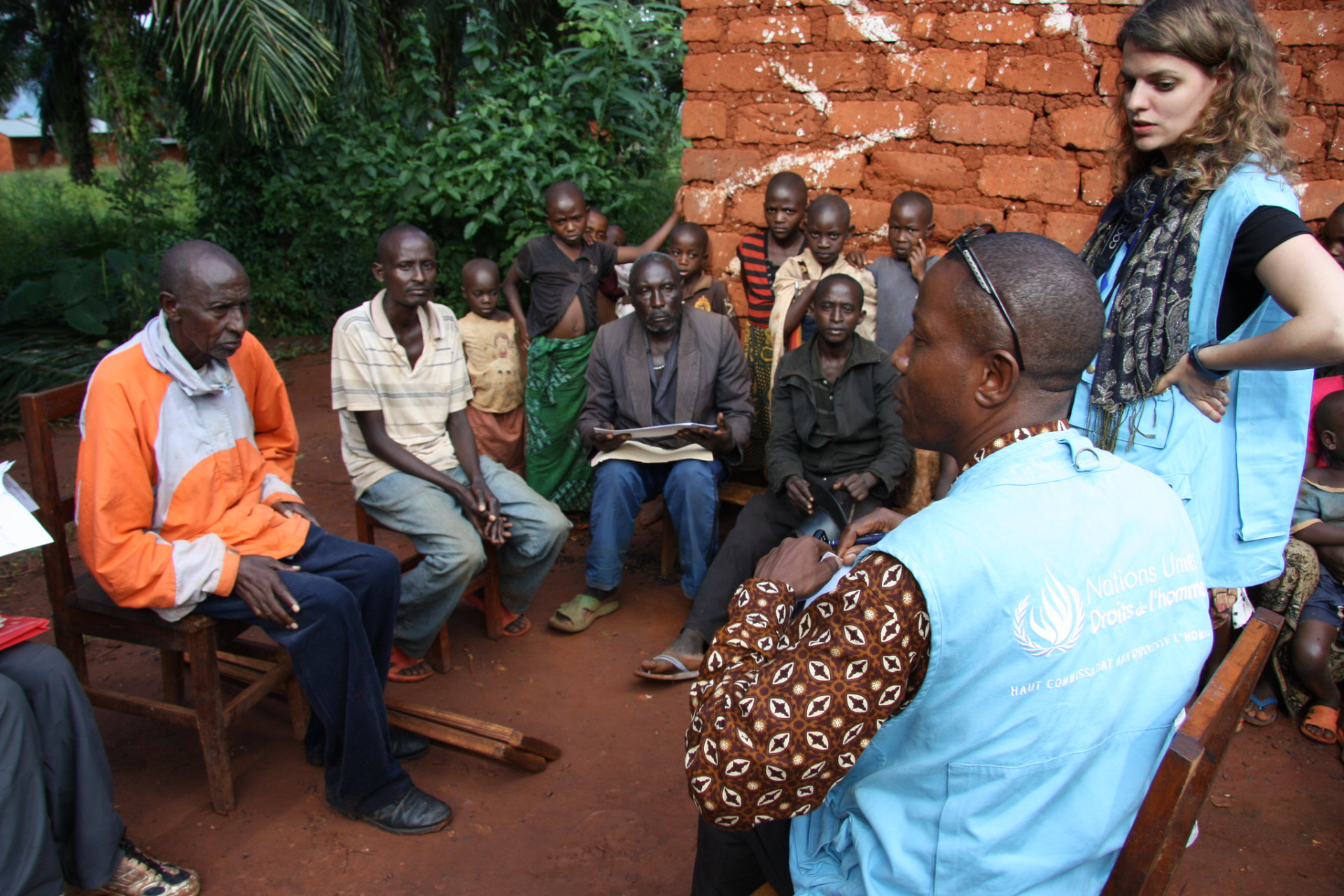
OHCHR local offices
The UN Human Rights Office has a global presence with 12 regional and 18 country offices in 2024. In addition, OHCHR is present in several peacekeeping missions, and human rights advisors are deployed to more than 40 UN country teams. The activities are manifold: human rights officers on a national level interact with the government and national structures, such as the national human rights commission or civil society organizations; they monitor the human rights situation and record violations; protect victims; and they publish human rights violations and make human rights issues known to the rest of the world.
Example: The Human Rights Office in Central Africa supported different countries in the region to submit their regular reports for the treaty bodies, the UPR and other human rights mechanisms: for many governments, being able to gather and analyze comprehensive data about the human rights situation is the first step towards addressing potential problems and thus better serving their citizens.
The Central Africa Office also trained numerous journalists in human rights reporting. As a result, more than 180 articles were published, in addition to several dozens of TV and Radio reports broadcast on human rights issues. In the longer run, this helps citizens to better understand and protect their rights.
Example: Sierre Leoone abolishes the death penalty
Universal Periodic Review
A unique system inside the UN, the Universal Periodic Review is a peer process between States. In a constructive spirit, governments commend each other for achievements in the field of human rights and give recommendation about what could be improved. Each State is under review every 4.5 years. Basis for the States’ recommendations are a national report, a UN analysis as well as a report drafted by stakeholders, such as civil society organizations. Once all recommendations have been received, the State under review publicly mentions which recommendation it will accept and work on.
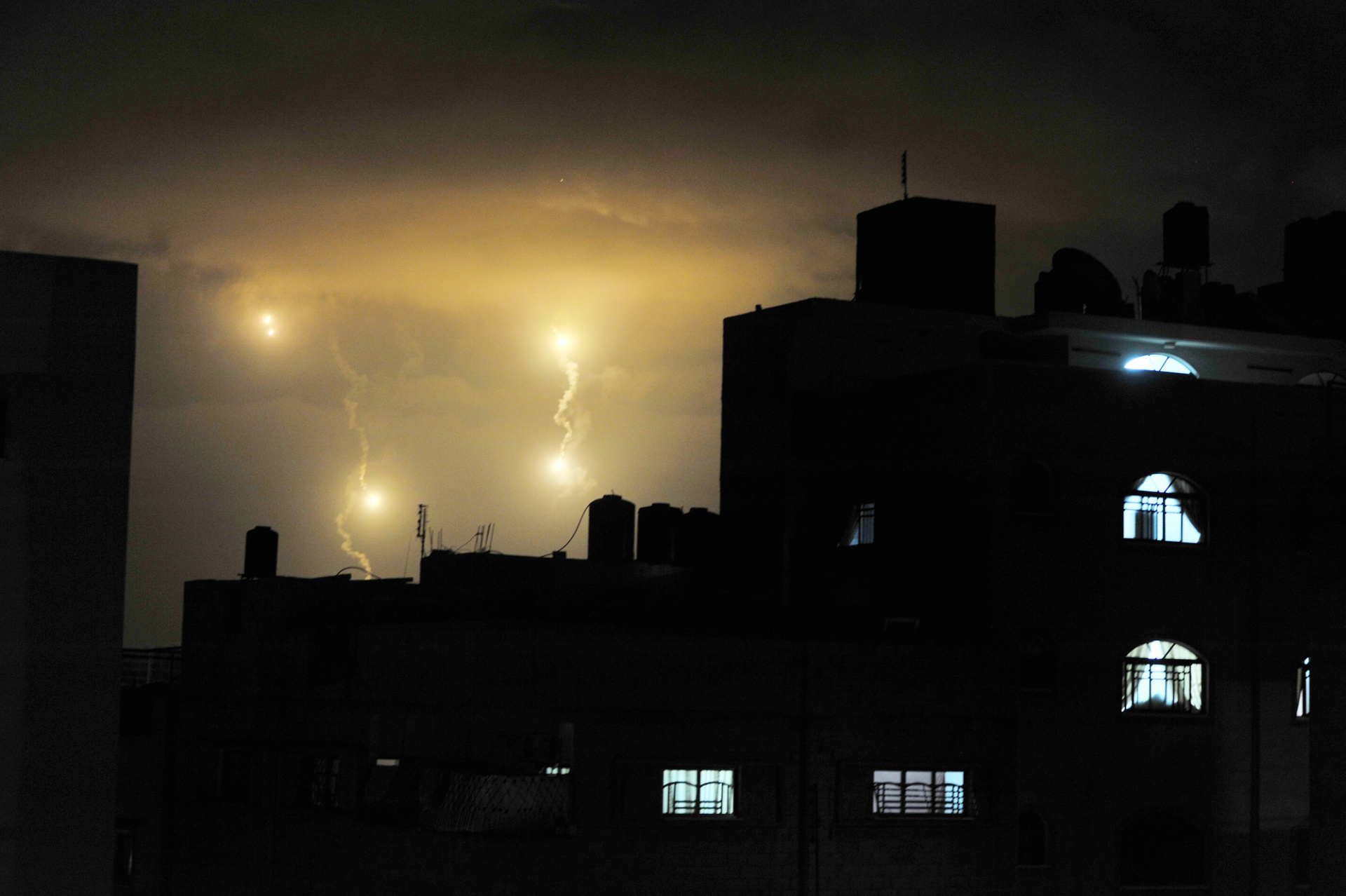
Investigations
When a country grossly violates the rights of its own citizens, the UN starts investigations. Currently, OHCHR, upon request of the Human Rights Council, investigates human rights abuses in 13 countries, spanning from Venezuela to Belarus, Syria, Sudan and Myanmar. In addition, there is an ongoing investigation about racial justice in law enforcement which is not tied to one country.
Moreover, investigative mechanisms on Syria (IIIM & IIMP) and Myanmar (IIMM) have been established by the General Assembly and are also working from Geneva.
The investigators speak to victims and witnesses, and they keep a detailed track record of incidences, including, where identifiable, the criminals who commited the human rights abuses. These records can be used to sanction a country, provide asylum or pay reparations to victims, or to indict perpetrators – either in front of an international court, or at a later point in time, when the governments’ own judicial system has been reinstated.
Example: a former high-ranking Syrian official was sentenced to life in prison by a German court for his role in torture, murder and sexual violence towards the Syrian people. He had sought asylum in Germany, but, partially thanks to evidence collected by the IIIM, the atrocities he had committed were unveiled.
Explainer: What is the “Independent Institution on Missing Persons in Syria”?
In 2023, the UN General Assembly passed a resolution to establish an Independent Institution on Missing Persons in Syria, tasked to uncover the fate of all missing persons, and to support their family members as well as survivors. Official numbers indicate that around 100,000 persons have gone missing during the 13-year civil war ravaging the country, with actual figures estimated to be much higher.
To implement this new mechanism, OHCHR has hired staff with expertise in victims’ rights and missing persons who will be starting their work in 2024.
Working on human rights: what impact does it have?
With all the bad news we see, and crises seeming to worsen by the day, is human rights work not just an effort in vain? Indeed, there is no mechanism that can enforce the compliance of a government with its human rights commitments, although many of the international human rights laws and treaties are legally binding. However, human rights work has several crucial functions:
The work of human rights officers at the UN and in other organizations contributes to shedding light on all the human rights violations that are happening, and their findings are oftentimes the basis for media reports. If there were no neutral actors on the ground to record and publish these human rights violations, they could easily be swept under the carpet.
Collecting evidence and keeping a detailed track record of all incidents and involved persons is required when eventually prosecuting perpetrators of these violations.
Many states lack knowledge or means to develop their human rights, law enforcements or court systems. The UN steps in and, as a partner, helps governments to improve their mechanisms which eventually benefits the citizens.
Through its review and control mechanisms, the UN Human Rights Office points at shortcomings in a country’s human rights records. Similarly, during the Universal Periodic Review, States put pressure on their peers to increase their efforts to protect human rights. The constructive feedback proves to be effective in that most States refer to the recommendations they received during the last review and proudly report on the progress made since then.
Where can a person or an NGO turn to when their government systematically violates their human rights? The Human Rights Office manages several complaint mechanisms which allow individuals or groups to report situations incompatible with international human rights law. These complaints, after being thoroughly vetted, may result in re-trials or compensations, in releases from prison or reduced sentences, in new policies that align with international human rights standards, or in further actions on the side of OHCHR, such as an independent investigation, technical assistance or the appointment of a Special Rapporteur to observe the situation.
Organizations working on human rights
Le Mécanisme international, impartial et indépendant - Syrie (IIIM) a été créé en décembre 2016 par l'Assemblée générale pour aider à l'enquête et à la poursuite des personnes responsables des crimes les plus graves de droit international commis en République arabe syrienne depuis mars 2011.
L'IIIM [...]
En septembre 2018, le Conseil des droits de l'homme des Nations Unies a créé le Mécanisme d'enquête indépendant pour le Myanmar avec pour mandat de collecter, consolider, préserver et analyser les preuves des crimes internationaux et des violations du droit international les plus graves commis au [...]
L'Institution indépendante est une entité des Nations Unies créée par l'Assemblée générale le 29 juin 2023 en réponse aux appels urgents des familles des milliers de personnes disparues en Syrie pour déterminer leur sort et leur localisation. La résolution fondatrice de l'IIMP lui donne pour mandat [...]
L’Organisation internationale du Travail est l’institution des Nations Unies spécialisée dans les questions liées au monde du travail. Elle rassemble gouvernements, travailleurs et employeurs autour d’une approche de l’avenir du travail centrée sur l’humain, en soutenant la création d’emplois, les [...]
Fondée en 1951, l'OIM est la principale organisation intergouvernementale dans le domaine de la migration et travaille en étroite collaboration avec les partenaires gouvernementaux, intergouvernementaux et non-gouvernementaux. L'OIM travaille pour aider à assurer la gestion humaine et ordonnée des [...]
L'ITC est l'agence conjointe de l'Organisation mondiale du commerce et des Nations Unies. En tant que partenaire de développement pour le succès des exportations des petites entreprises, l'objectif de l'ITC est d'aider les pays en développement et en transition à atteindre un développement humain [...]
En juillet 2010, l'Assemblée générale des Nations Unies a créé ONU Femmes, l'Entité des Nations Unies pour l'égalité des sexes et l'autonomisation des femmes. Ce faisant, les États membres de l'ONU ont franchi une étape historique dans l'accélération des objectifs de l'Organisation en matière d [...]
Le Programme des Nations Unies pour les établissements humains, ONU-HABITAT, est l'agence des Nations Unies pour les établissements humains. Il est mandaté par l'Assemblée générale des Nations Unies pour promouvoir des villes et des villes socialement et écologiquement durables dans le but de [...]
L’ONUSIDA mène l’action à l’échelle mondiale pour mettre fin à l’épidémie de sida comme menace de santé publique d’ici à 2030 dans le cadre des Objectifs de développement durable.
Depuis la découverte des premiers cas de VIH il y a plus de 35 ans en arrière, 78 millions de personnes ont été [...]
Le Bureau de liaison de l'UNESCO à Genève (GLO) a été créé en 1979 afin d'assurer la liaison entre l'UNESCO et l'Office des Nations Unies à Genève (ONUG), les agences spécialisées des Nations Unies basées ici (par exemple l'OMS, l'OIT, l'UIT, l'OMPI et l'OMM), les programmes des Nations Unies [...]
Le HCR, l'Agence des Nations Unies pour les réfugiés, est une organisation internationale qui se consacre à sauver des vies, à protéger les droits fondamentaux et à bâtir un avenir meilleur pour les personnes contraintes de fuir leur foyer en raison de conflits et de persécutions. Nous dirigeons l [...]
L’UNICEF travaille dans les endroits les plus inhospitaliers du monde pour atteindre les enfants et les adolescents les plus défavorisés. Pour défendre les droits de chaque enfant, où qu’il soit. Dans plus de 190 pays et territoires, nous mettons tout en œuvre pour aider les enfants à vivre, à s [...]
L'Institut des Nations Unies pour la recherche sur le désarmement (UNIDIR) - un institut autonome au sein des Nations Unies - mène des recherches sur le désarmement et la sécurité dans le but d'aider la communauté internationale dans sa réflexion, ses décisions et ses efforts en matière de [...]
En tant qu'organe du système des Nations Unies dédié à la formation, l'Institut des Nations Unies pour la formation et la recherche (UNITAR) fournit des solutions d'apprentissage innovantes aux individus, aux organisations et aux institutions afin d'améliorer la prise de décision au niveau mondial [...]
L'Office des Nations Unies contre la drogue et le crime (ONUDC) a pour mandat de rendre le monde plus sûr face aux drogues, au crime organisé, à la corruption et au terrorisme. L'organisation s'engage à assurer la santé, la sécurité et la justice pour tous en s'attaquant à ces menaces et en [...]
L’Institut de recherche des Nations Unies pour le développement social (UNRISD) est un institut autonome au sein du système des Nations Unies qui entreprend des recherches pluridisciplinaires sur les dimensions sociales des questions actuelles de développement, et qui analyse les politiques menées [...]
Le Programme alimentaire mondial est la première organisation humanitaire au monde. Il sauve des vies dans les situations d’urgence et utilise l’assistance alimentaire pour ouvrir une voie vers la paix, la stabilité et la prospérité au profit de ceux qui se relèvent d’un conflit, d’une catastrophe [...]


